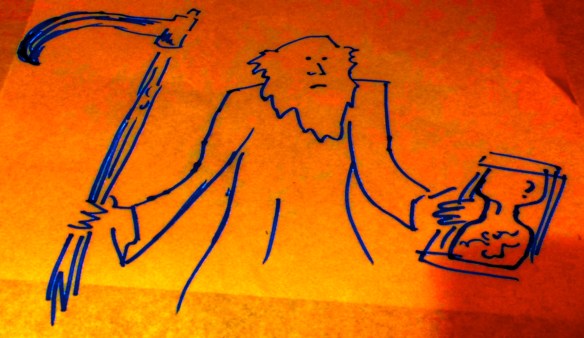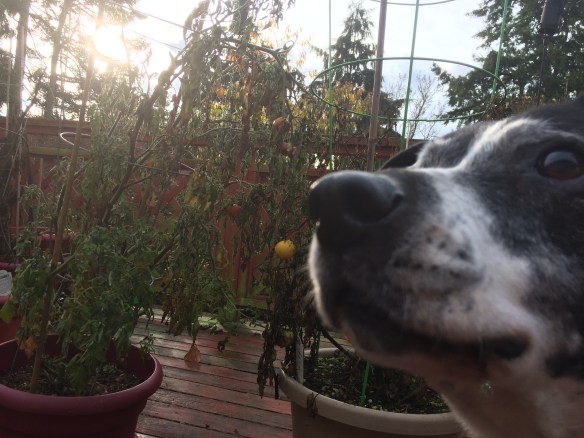by
JC Schildbach, LMHC
New Year’s morning, my wife roused me from a dream to tell me it was time to help set up the dining room for Osechi (Osechi Ryori: Japanese traditional New Year’s Day food).
I mention the dream because it has stuck with me—or, rather, a portion of it has stuck with me—since then. A particular image from that dream has entered my thoughts multiple times daily since then—whether because I’m hanging onto it or struggling to forget it. The image involves me surveying the damage from a shart (shart: what happens, as the saying goes, when one gambles on a fart and loses; a combination of sh*t and fart).
I don’t recall much of anything that happened in the dream before the shart occurred. But I do recall that I was wearing blue underwear and the aftermath was very much like a runny version of the gravy from almond chicken (almond chicken: a staple of American Chinese restaurant menus, where breaded, boneless, fried chicken is covered in a light brown American-style gravy –flour and fat— full of chopped almonds).

Just what am I looking at? And what does it mean?
I haven’t looked up any of the elements of the dream in any dream dictionaries, online or otherwise – not the blue, not the almonds, not the shart, not any of it. So, if you’re into dream analysis and have a clear understanding of what these elements add up to – well, I probably don’t want to know. Keep it to yourself.
Perhaps this image has stuck with me because most dreams I (and I would guess most other people) have that involve, what I will call “bathroom stuff” are usually tied to bathroom functions that never come to fruition. For example, a dream where one is running around looking for a place to pee, only to have each option for relief somehow thwarted. One eventually wakes up and realizes that the dream was trying to push one to wake up and go take a piss in a completely ‘normal’, non-thwarted, perfectly relieving fashion. I do not recall any of these previous dreams resulting in actually finding ‘release’ while in the dream, much less, having a ‘release’ with unintended consequences.
I’m happy to report that, in this particular instance, there was no corresponding pushing or expulsion activity married to the dream. That is, despite a flash of anxiety on waking, there was no indication the dream had come true.
I bring all this up, in part, because for several years now, initially starting in an annual series of posts on Facebook, and later moving to my blog (and a few connected social media sites), I put out New Year’s resolutions. These started out as lighthearted, silly jokes, usually concluding with one ‘positive’, ‘real’, but vague, resolution. For instance, I would have three resolutions that suggested I was going to do spectacularly impossible things (establish the ultimate matrix for determining whether a ‘Men’s Rights’ Internet account or website is a parody account or actually intended to be serious);or completely bland, totally achievable goals, (resolving to actually trim my toenails regularly). Those would be followed by one resolution involving haircare, which would be followed by one that said I would live joyfully or some such sh*t.
Then, at the end of the year, I would write up a ‘year end review’, where I tracked my success in meeting the resolutions (silly and not-so), before I moved on to a new set.
In the process of doing the review of my 2-18 resolutions, I realized that maybe a bit too much seriousness had crept in, too much silliness leaked out. It had, at least to me, a darker tone about it than previous years. Then again, in spite of numerous good things in 2018, the whole year had a darker tone to it.
2018 was a year of numerous things going to hell, and me struggling to reel them back in— none of which I will share here now. All in all, things turned out okay, but not without a lingering, nasty aftertaste…or several different lingering, nasty aftertastes.
2018 also had some great moments of joy—specific moments of laughter and happiness I can vividly recall, also none of which I will share here now.
This far into 2019, it would be a bit strange to be making resolutions anyway, unless maybe I was claiming they were tied to a little procrastinating around the Lunar New Year. But, still, I’m abandoning the idea of resolutions, at least for 2019. And I’m trying to learn to accept that much of life is way beyond my control, and that I’ll be okay…or I won’t…and that not being okay will probably be okay as well.
I tried to attach some meaning to the dream of the shart – that it was advising me not too push things too hard or they would become messy – or perhaps to push hard because even if the outcome was messy, it would still be fine—I’d wake up to a fantastic meal with some of the people I loved most, or a disgusting mess in my pants that really wouldn’t be that difficult to clean up.
At any rate, the (forced) meanings kept coming back to how I should or shouldn’t force things, how forcing things would turn out either good or bad. And then it got all meta – about how I keep starting posts, only to abandon them because they seem too forced –and therefore too bland, like almond chicken –or too sloppy, poorly planned, and offensive, like a shart.
The whole concept of intentions –push to get a reaction, or hold back to make the right, polite points, merely led to almost every writing effort over the last year turning into either a dull essay, or a mean-spirited rant – with those efforts usually being abandoned to steer clear of that dullness, or to unload that spite on somebody in some pointless, online argument that added up to nothing beyond the sound of clacking keys and the fury of unanswered tantrums. For the most part, the posts just didn’t get finished, or if the writing was more or less completed, did not get put out into the world…much like I’ve been struggling over the whole idea of posting a shart-centered missive, ostensibly connected to New Year’s resolutions.
Ultimately, I realize I’m attempting to assign meaning to this dream because 1) it occurred on the first day of the year; 2) I was woken out of the dream at the point of a particularly striking and unpleasant visual unlike anything I recalled from any previous dreams; and 3) I’m struggling with just how much energy and effort I can and ‘should’ be devoting to writing, especially pieces that feel obligatory/how much energy I can and ‘should’ be devoting to engaging in patterned behaviors in general/how much energy I can and ‘should’ be devoting to breaking old patterns of behavior.
Maybe it all just comes down to the message that I should sh*t or get on the pot…and sh*t…or get off the pot. At least don’t sh*t my pants unintentionally?
Or perhaps push it. Push it real good. But with intention. Although I’m pretty sure that wasn’t initially related to scatological…uh…actions. But then again…
I know it’s gotta mean something about making sure you know what you intend to accomplish, or that you are making reasonable efforts to make sure you have some kind of control over the outcome of your actions, or…?
Anyway, Happy (belated?) (Lunar?) New Year!

 Ok, time (well, a little late, but still time) for the obligatory review of last year’s resolutions and the pass/fail ratings.
Ok, time (well, a little late, but still time) for the obligatory review of last year’s resolutions and the pass/fail ratings.






